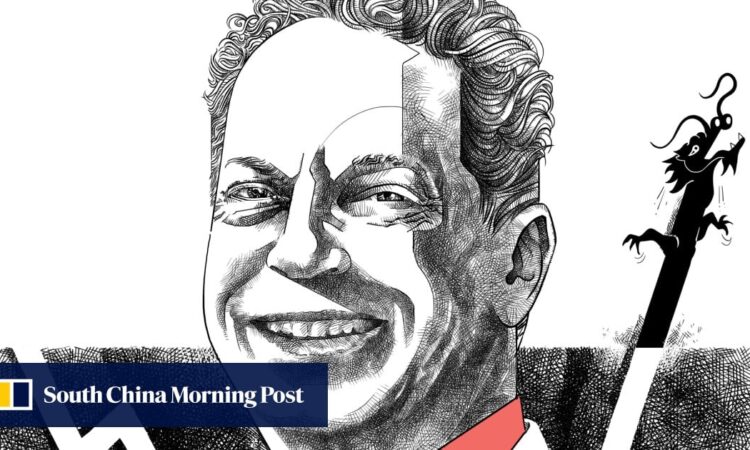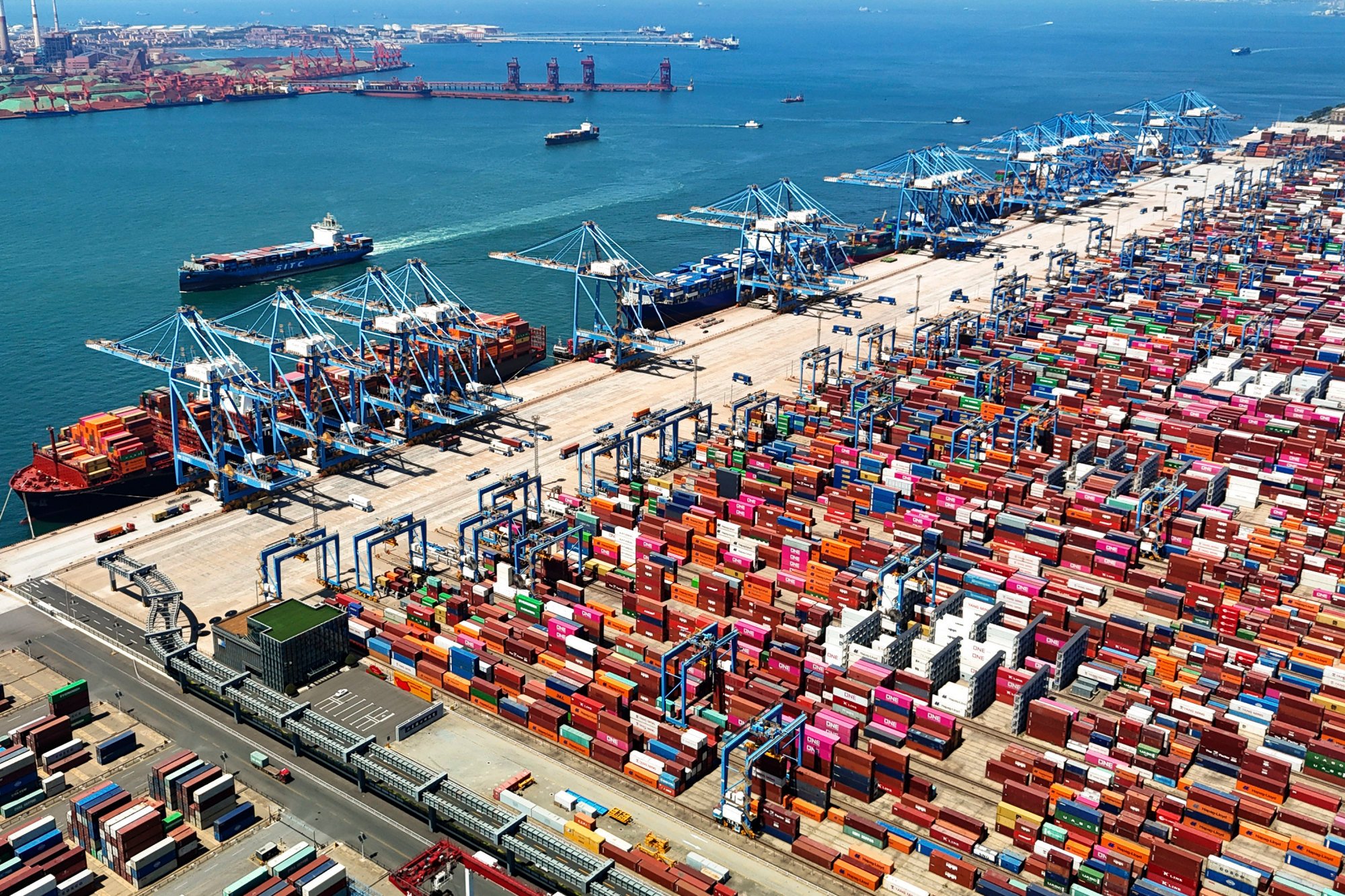
We may now be seeing a fraying of the stabilisation trend, with some frustration on both sides. But I think that domestic problems in China propelled the Chinese leadership to seek a calming of ties, and did not propel them to be more aggressive abroad, at least in terms of outright using force.
Since we are talking about the economy, what is your assessment of the Chinese economy so far? Especially after recent indications that it will be China’s priority moving forward, and also with local governments easing homebuying policies.
I think the Chinese economy is still struggling. You can see that in the data with regard to investment and consumption, with built-up inventories, the growing dependence on exports for growth, and in the tensions that’s generating with its trading partners around the world.
The Chinese government has focused on reviving the economy through supporting greater investments in advanced manufacturing and technology, and that has led to a massive shift in credit from real estate to industry. This supply-side approach has generated more production, but consumption has lagged, and the economy is still quite a ways from having a more balanced and sustainable growth trajectory.
Over the last six months the Beijing leadership has adopted incremental measures to find what could be deemed as the lowest price necessary to restore confidence. This incrementalist strategy – with regard to credit, the stock market, housing, support for private companies and foreign companies – has, I think, been interpreted by market actors as an effort that they’re taking on grudgingly and not as one that they’re fully committed to.
That’s why you’ve not seen the buy-in domestically and internationally. China needs, really, at this time more of a big bang approach to restore confidence to get the economy moving again.

China has criticised Washington’s description of its relationship with Beijing as a “strategic competition”, with the view that it did not make sense for China to cooperate with a country that treated it as a rival. Should and can the US reframe or redefine its relationship with China?
It’s interesting to note that since the two presidents met in San Francisco, we have not seen anyone in the Biden administration publicly use the term “strategic competition”. They still use the word competition but they’ve used other adjectives. That strikes me as not a coincidence. Their language has shifted somewhat, but their overall view that the relationship is primarily defined by competition and is a rivalry hasn’t changed.
Actually, in my opinion, the Chinese leadership also views this relationship as a deeply seated rivalry, but part of the rivalry is over how to describe it and frame it. Certainly, this is a normative competition as well. And China’s desire to have ties be framed as cooperative helps place itself as the more responsible actor that wants peace and is willing to take steps to achieve it. However, this narrative is not reflected in many Chinese economic policies and military actions, which appear much more zero-sum.
Moreover, China’s advocacy for changes in global governance reflects a preference for a world order decidedly different from the current rules-based order favoured by the US and the West.
China likely also wants a cooperation framework to define ties as part of an effort to receive assurances that the US is willing to peacefully coexist with this Chinese regime permanently. And I think the US has said that it is not at all interested in regime change and is fine with peaceful coexistence with China, but it’s possible these repeated reassurances, in public and private, are not believed by many corners in China who have watched colour revolutions in other authoritarian countries.
I want to move on to the report you co-wrote in 2023 with Professor Wang Jisi – “Breaking the Ice” – where you said that negative perceptions had hardened quite substantially in both Washington and Beijing over the past few years. Do you see this as an irreversible trend given how nationalism has become such a big feature in both countries? And what will it take to really soften negative perceptions?
Perceptions are still quite negative, whether you’re looking at polling data or you interview officials from both sides, and whether they’re in the central governments or local governments. Even in states and cities in the United States, the dominant theme of conversations and policy revolve around China and national security, not economic competition or cooperation with China. That’s a big change from the last quarter century.
I would say that these views are increasingly entrenched because you see that not only amongst policymakers but amongst average people and in TV programmes, movies and music. So they resonate.
That said, it is entirely possible – because the historical record shows it – that public attitudes can change dramatically. They can become much more negative, or they can become much more positive. They change when there are sustained changes in both policies and outcomes.
But the current downturn is not in reaction to a specific event, but broader shifts.
The dominant view in the United States and much of the West is that over the last decade-plus China has really shifted away from the “reform and opening” era with regard to governance of its domestic economy and its engagement with the rest of the world. As a result, instead of encouraging China to continue on a reformist path that it no longer is pursuing, the US and the West are focused on building resilience and finding ways to manage a relationship with a China that is going in a different direction.
And so, from the Western perspective – and this is not just Washington but capitals in Europe and some of China’s neighbours – China would need to demonstrate that it was really moving back toward “reform and opening” in a variety of specific ways. And I think probably from Beijing’s perspective, it feels under assault on issues related to its governance and foreign policy. So there’s a significant amount of reassurance that both sides would need to take and then implement to achieve genuine stability in ties.
We’re very far from that. I don’t see China shifting the direction of its policies dramatically unless there’s some major crisis, and I don’t see the US and West fundamentally changing their approach either.
One suggestion that you made in the report was for both sides to commit to restoring connections between the two societies. We’ve seen some progress such as the increase in flights and plans to bring 50,000 American students to China over five years. Regarding the 50,000 target, are you confident that it could be met? And are these measures in your view sufficient at this point?
I think the efforts the two sides have taken so far have been constructive yet incremental and far from sufficient. At a practical level, there are still not enough flights, including far too few direct flights, and tickets are still expensive. The number of visas being issued has grown but the process for obtaining visas is still somewhat complicated.
And although the official data show that the rejection rate for visa applications is quite low, the lived experience of Chinese shows that there are greater challenges to obtaining a US visa than there used to be, even for those who should fall into categories which present minimal risks to the US.
Similarly, travelling in China is still a challenge, and there’s still a chill on scholarly research. Even if official regulations don’t ban fieldwork, it’s more complicated to carry out research. People are still more hesitant to accept interviews, and it’s difficult to collect data.
It’s in both countries’ national interest that the other side understands them as much as possible, and that requires facilitating in-person travel, research, and communication. But both sides still have a variety of obstacles to that. Many of those are understandable. Every country needs to protect its national security, but both sides seem to have gone too far.
I’ve heard repeatedly from US students and businesspeople that China’s closed internet and the Great Firewall are a huge obstacle to them. That single problem of not being sure that they can get access to regular information and news and keep in touch with their families, friends and colleagues abroad, and that they may be surveilled electronically, is the number one factor blocking achievement of that goal. Lowering these barriers may be the most important step Beijing could take to meet their own target.
CSIS is a nonpartisan think tank and we don’t as a group or individually take a position on candidates, campaigns or political parties. But as a point of analysis, one could make an argument that the Chinese government might see an advantage in a Trump victory because he has claimed he is friends with Xi Jinping and Vladimir Putin.
Also, he appears primarily focused on commercial issues, has been more of a military isolationist, and during his time in office aggravated relations with allies. Beijing might also expect that his presidency would generate significant frictions within the US and weaken America’s political institutions.
Despite the possibility of drawing such a conclusion, my sense, based on talking to Chinese from a variety of circles is that although they are aware of those potential “benefits”, the people that I speak with see huge risks primarily because of the uncertainty that they believe would come with a Trump presidency.
Although, as discussed above, Beijing is unhappy with the Biden administration’s focus on competition, they seem to be more worried about the unpredictability of a potential Trump administration than the predictability of a continuing rivalry under a potential second Biden term.
Bringing this conversation full circle, China’s economy is facing significant headwinds. China has tensions with many of its neighbours and with countries in Europe and the US, and a more stable, predictable international environment would provide more space for China to handle its challenges. The chances that it would get that kind of opportunity and space with a potential Trump administration would be a giant question mark.






